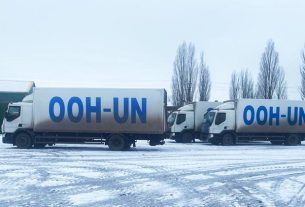Business
Fuel Supply Crisis in Mali
- A blockade imposed by the jihadist group Jama’at Nusrat al‑Islam wal‑Muslimin (JNIM) since early September has targeted fuel import convoys into land-locked Bamako (Mali), forcing long queues at pumps, soaring black-market prices, and transport disruption. (Al Jazeera)
- Major carrier CMA CGM announced it would not suspend shipments to Mali after initially planning to halt due to safety and fuel risks—signalling logistical strain but also the willingness of commerce actors to maintain links. (Reuters)
Implications: The crisis shows how non-state armed groups are leveraging economic chokepoints to exert influence. It underlines the fragility of infrastructure in land-locked states and raises the cost of doing business, especially for transport-intensive sectors.
Port and Drug-Seizure Collaboration in Nigeria
- Nigeria’s National Drug Law Enforcement Agency (NDLEA) confirmed that a 1,000 kg cocaine shipment (valued US$235 m) was intercepted at Lagos’ Tincan Port. The U.S. Drug Enforcement Administration (DEA) and UK’s National Crime Agency (NCA) are collaborating in the investigation. (AP News)
- The seizure highlights Nigeria’s importance as a transit hub in global narcotics flows and the increasing internationalisation of drug-law enforcement partnerships across Africa.
Implications: The event underscores risks to logistics and trade flows, the need for stronger port security and customs practices, and the broader business environment where illicit flows can distort economies and drive reputational risk.
Technology
African Recruitment into the Ukraine Conflict
- Kenya’s government revealed that more than 200 of its nationals may have joined Russian forces fighting in Ukraine. Recruitment networks are reportedly still active, targeting Africans with promises of high pay or misleading job descriptions (e.g., drone-assembly, chemical work) that turn into combat roles. (Anadolu Ajansı)
- The Ukrainian government claims over 1,400 citizens from 36 African countries are fighting for Russia, many recruited under deceptive contracts described by Kyiv’s foreign minister as “equivalent to … a death sentence”. (Al Jazeera)
Implications: This phenomenon touches on technology (drone assembly, chemical handling etc), globalised mercenary recruitment, and regulatory gaps in overseas work. It flags cyber-recruitment risks, human-trafficking overlaps and the need for digital monitoring of recruitment platforms.
Digital Disinformation & Recruitment Platforms
The recruitment mechanisms reportedly leveraged digital channels, misleading job adverts via social media promising “technical work abroad” but steering individuals into warfare. This signals emerging intersections between tech, virtual recruitment and international security.
Implications: Governments and NGOs need to monitor online recruitment for combat roles, build awareness among vulnerable populations, and strengthen regulation of overseas-job brokers in the digital economy.
Geopolitics
Sudan’s Darfur Region – Capture of El Fasher
- The paramilitary Rapid Support Forces (RSF) captured the city of El Fasher on 26 October, completing its takeover of Darfur’s urban centres. (The Guardian)
- The capture shifts regional dynamics: Darfur’s control now lies almost entirely with RSF, undermining the central government’s authority and raising concerns about fragmentation, external interventions and proxy alignments.
Implications: The event has potential spill-overs into neighbouring states, affects refugee flows, and increases the strategic importance of Darfur in East/West African geopolitics. It complicates peace processes and external mediation efforts.
South Sudan: Political Shake-Up and Succession Uncertainty
- In Juba (South Sudan) the dismissal of Vice-President Benjamin Bol Mel has sparked speculation about presidential succession under Salva Kiir. (Reuters)
- Bol Mel’s removal comes alongside the firing of senior officials in the central bank and revenue authority—interpreted as part of a wider internal power-re-alignment. (thejubamirror.com)
Implications: The developments weaken internal cohesion in South Sudan’s ruling party, threaten implementation of the 2018 peace agreement, and raise the risk of renewed conflict ahead of delayed elections.
Security
Humanitarian Operations at Risk in Sudan
- The International Organization for Migration (IOM) has warned that humanitarian operations in North Darfur are on the brink of collapse—warehouses are nearly empty, convoys face attacks, and funding is critical. (AP News)
- UN agencies reported nearly 82,000 people have been displaced since the fall of El Fasher, many walking through unsafe routes without access to food or medicine. (The United Nations Office at Geneva)
Implications: Military conflict is increasingly intersecting with humanitarian collapse: aid delivery is itself a security risk, and civilian populations become assets in war economies. It also raises the potential for mass starvation and large-scale displacement.
Militant Economic Warfare in Mali
- JNIM’s fuel-blockade strategy marks a shift from traditional guerrilla tactics to economic warfare: by choking fuel supplies, the group undermines essential services and state legitimacy. (Al Jazeera)
- The blockade has caused black-market fuel pricing to triple or quadruple and paralyzed transport and power systems in Bamako. (Gulf Times)
Implications: Insurgent groups are exploiting vulnerabilities in state infrastructure and supply-chains; governments need to protect logistics corridors and rethink security beyond the battlefield (including economic target-hardening).
Human Rights
Mass Atrocities in Darfur
- Reports from the UN and NGOs indicate the RSF and allied forces carried out ethnically targeted killings and mass rapes following the capture of El Fasher, including public gang-rapes of women and girls. (The Guardian)
- Aid workers reported extremely high levels of child malnutrition in displacement camps (over 70% acute malnutrition among children under five arriving after the takeover) and limited access to medical care or clean water. (The Guardian)
Implications: These are grave violations of international humanitarian and human rights law. The patterns suggest possible war-crimes or crimes against humanity, underscoring the need for accountability, documentation and protection of civilians.
Forced Recruitment and Rights Abuse of African Nationals
- The recruitment of African nationals into the Ukraine-Russia conflict under false job promises constitutes a severe labour-exploitation and human-trafficking risk, with some ending up in combat roles. (IntelliNews)
- Kenya’s embassy in Moscow recorded injuries among its nationals recruited for the Russian war effort; the recruits were alleged to have signed contracts with inadequate training or equipment. (Kyiv Post)
Implications: This issue spans migration, labour rights, national security and human rights. African governments must strengthen oversight of overseas recruitment and protect citizens from exploitation.
Summary
Across the African continent, complex dynamics are evolving in parallel: economic disruption driven by militant tactics (Mali), state fragility and infrastructure breakdown (Nigeria, South Sudan), and humanitarian emergencies born of conflict (Sudan). Tech and globalisation further complicate traditional security and rights challenges—recruitment networks, drone-assembly, overseas warfare. The interplay among business, geopolitics, technology, security and human rights is increasingly visible. The situation demands a coordinated policy response: states need to defend supply-chains and infrastructure, regulate recruitment and migration, protect civilians and uphold humanitarian access, and ensure accountability for rights violations.



